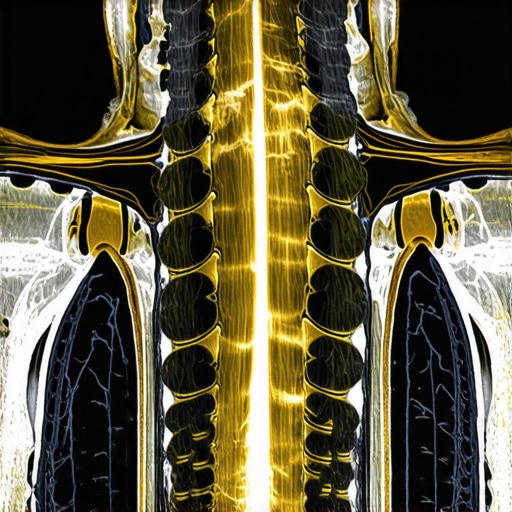My Personal Encounter with Neck Pain in Passaic NJ
It all started one chilly morning when I woke up with an unbearable stiffness in my neck. As someone who spends hours at a desk, I knew I needed to find a reliable neck pain specialist near Passaic NJ. My quest for expert orthopedic care led me to discover the importance of specialized treatment and how a dedicated specialist can truly make a difference.
How I Discovered the Right Neck Pain Specialist
Initially, I was overwhelmed by the numerous options available. I wanted someone with proven experience in cervical spine issues and a compassionate approach. After researching and reading reviews, I found a local clinic that specializes in neck and spine health. Their team was highly recommended for top orthopedic spine specialists in NJ. This made me feel confident that I was in capable hands.
My Experience with Orthopedic Care for Neck Pain
From my first consultation, I appreciated the thorough assessment. The doctor explained that neck pain can stem from various causes like herniated discs, muscle strain, or degenerative conditions. I learned that effective treatments often involve a combination of physical therapy, medication, and sometimes minimally invasive procedures. My treatment plan included targeted physical therapy, which significantly improved my mobility and reduced pain.
What I Wish I Knew Before Choosing a Specialist
One thing I realized was the importance of asking questions about the specialist’s experience with specific neck conditions. For instance, I wondered,
“How do I know if my neck pain requires surgery or non-surgical treatment?”
After consulting with my doctor and reviewing authoritative sources like [American Academy of Orthopaedic Surgeons](https://orthoinfo.aaos.org/), I understood that most neck pain can be managed with conservative care. Surgery is typically reserved for severe cases or when nerve compression is involved.
My Advice for Others Seeking Neck Pain Relief
If you’re searching for a neck pain specialist near Passaic NJ, I recommend prioritizing experience, patient reviews, and a comprehensive approach to care. Don’t hesitate to explore options for rehabilitative therapies and non-invasive treatments first. Remember, early intervention can prevent chronic issues and improve your quality of life.
Feel free to share your experiences or ask questions in the comments below. If you’re still unsure about choosing the right specialist, I suggest visiting a reputable clinic such as the one I found, which offers expert care tailored to your needs.
Why Is Precise Diagnosis Crucial in Neck and Spine Pain Management?
As an orthopedic expert, I often emphasize the importance of accurate diagnosis before determining treatment options for neck and spine issues. Many patients underestimate how complex spinal conditions can be, ranging from herniated discs to degenerative diseases. Proper assessment helps distinguish cases that can benefit from conservative therapies—like physical therapy and injections—from those requiring surgical intervention.
What Are the Key Indicators That Surgery Might Be Necessary?
When evaluating neck or back pain, certain red flags suggest that more aggressive treatment, such as surgery, might be warranted. These include persistent neurological deficits, worsening weakness, loss of bowel or bladder control, or severe pain unresponsive to non-invasive treatments. For example, a patient experiencing significant nerve compression from a herniated disc may need surgical decompression to prevent permanent nerve damage. To better understand the thresholds and decision-making process, consult reputable sources like the American Academy of Orthopaedic Surgeons.
How Do Orthopedic Surgeons Decide on the Best Surgical Approach?
Choosing the appropriate surgical method involves considering the patient’s specific condition, overall health, and personal preferences. Minimally invasive procedures, such as laser spine surgery or spinal decompression, are increasingly common due to reduced recovery times and less tissue disruption. An expert spine surgeon evaluates imaging results—like MRI scans—and neurological assessments to determine if fusion, discectomy, or other techniques are optimal. This personalized approach ensures the best outcomes while minimizing risks.
What Are the Risks and Benefits of Spinal Surgery?
While surgery can offer significant relief and restore function, it also carries inherent risks, such as infection, nerve injury, or failed fusion. Therefore, an experienced surgeon thoroughly discusses potential complications and realistic expectations. Advances in surgical technology and techniques continue to improve safety and efficacy, making surgical intervention a viable option for appropriate candidates. For detailed insights on surgical risks and benefits, review expert articles on laser spine surgery.
Have you wondered how to tell if your neck or back pain might require surgery? Share your questions or experiences below—discussing these concerns with a qualified orthopedic specialist can clarify your treatment options and help you make informed decisions.
As I delved deeper into my journey with neck pain, I realized that understanding the nuances of treatment options is crucial for making informed decisions. One aspect that often gets overlooked is the role of advanced diagnostic tools, such as high-resolution MRI scans, which can reveal subtle nerve compressions or disc degenerations that might not be apparent in standard imaging. These details can significantly influence the treatment plan, especially when considering minimally invasive procedures versus traditional surgery.
Reflecting on my experience, I recall how important it was to seek a specialist who not only had technical expertise but also a comprehensive understanding of emerging therapies. For instance, regenerative medicine approaches like platelet-rich plasma (PRP) injections are gaining popularity for their potential to promote tissue healing without surgery. Although still under research, these options exemplify how personalized medicine is evolving in orthopedics, offering hope for those with chronic neck issues.
One question I often pondered was:
“How do I determine if my neck pain is truly manageable with conservative treatments, or if I should consider early surgical intervention to prevent long-term damage?”
According to recent studies published by the American Academy of Orthopaedic Surgeons, a nuanced approach is essential. Red flags such as persistent neurological deficits, worsening symptoms despite therapy, or evidence of nerve root compression on advanced imaging warrant prompt surgical consultation. Early intervention in such cases can prevent irreversible nerve damage and improve quality of life.
In my journey, I also learned the value of multidisciplinary care, combining the expertise of orthopedic surgeons, physical therapists, and pain management specialists. This integrated approach ensures that all aspects of the condition are addressed, often leading to better outcomes and more personalized care. For example, incorporating ergonomic assessments and lifestyle modifications can complement medical treatments and reduce recurrence or worsening of symptoms.
If you’re exploring treatment options, I encourage you to share your experiences or questions. Engaging with a specialized top orthopedic spine specialist can be transformative, helping you navigate complex decisions with confidence. Remember, every neck pain case is unique, and a tailored approach — grounded in both current science and personalized care — is the best path forward.

Understanding the evolving landscape of neck pain management, from cutting-edge diagnostics to innovative regenerative therapies, truly empowers patients. It’s a reminder that ongoing research and personalized treatment strategies are continually enhancing our ability to recover and regain mobility. If you’re interested in exploring more about these advanced topics, don’t hesitate to reach out to qualified specialists who stay at the forefront of orthopedic care.
Deciphering the Complexity of Neck Pain and Surgical Thresholds
As I continued my journey through the intricate landscape of neck pain, I became increasingly aware of the nuanced decision-making process that guides surgical intervention. While conservative treatments like physical therapy and injections often suffice, certain indicators necessitate a more aggressive approach. Persistent neurological deficits, progressive weakness, or loss of bowel or bladder control serve as red flags that warrant prompt surgical consultation. Advanced diagnostic tools such as high-resolution MRI scans, which can reveal subtle nerve compressions or disc degenerations, play a pivotal role in these assessments. According to a comprehensive review by the American Academy of Orthopaedic Surgeons, early detection of nerve compression is essential to prevent irreversible damage.
Personalized Surgical Strategies and Minimally Invasive Innovations
My experience with surgical decision-making underscored the importance of personalized treatment plans. Orthopedic surgeons evaluate imaging results and neurological assessments to determine whether procedures like discectomy, spinal fusion, or innovative minimally invasive techniques are most appropriate. Techniques such as laser spine surgery or endoscopic decompression are increasingly favored due to their reduced recovery times and minimal tissue disruption. These advancements exemplify how tailored interventions can optimize outcomes and patient satisfaction. For those curious about the latest surgical innovations, I recommend exploring detailed insights on laser spine surgery.
Risks, Benefits, and the Evolving Landscape of Spinal Surgery
While surgical options offer promising relief, they are not without risks—ranging from infection to nerve injury or failed fusion. It’s crucial for patients to engage in thorough discussions with their surgeons about potential complications and realistic expectations. Advances in surgical technology continue to enhance safety profiles, making procedures like minimally invasive decompression highly effective. Staying informed through authoritative sources helps demystify these interventions and prepares patients for informed decision-making. For instance, detailed evaluations of laser spine surgery, including risks and benefits, can be found at this resource.
How can I determine if my neck pain warrants early surgical intervention to prevent long-term damage?
Understanding the subtle signs that indicate the necessity for surgery is vital. Red flags such as persistent neurological deficits, worsening symptoms despite conservative therapy, or imaging evidence of nerve root compression should prompt prompt consultation with a spine specialist. Early intervention can significantly improve prognosis and prevent irreversible nerve damage. Consulting with an experienced orthopedic or neurosurgeon who specializes in spinal conditions is crucial for personalized advice. Engaging with multidisciplinary care teams, including physical therapists and pain specialists, can also provide comprehensive insights into the most appropriate course of action.
If you’re navigating complex decisions about neck pain treatment, I encourage you to share your experiences or questions. Connecting with a top orthopedic spine specialist can empower you with tailored insights and peace of mind. Remember, each case is unique, and a personalized approach grounded in current science is your best strategy for recovery.

Advancements in diagnostic imaging and minimally invasive techniques are transforming the way we approach spinal health. Staying informed about these innovations enables patients to make empowered decisions and engage proactively in their care. If you’re interested in exploring these cutting-edge options, don’t hesitate to seek expert guidance from specialists who are at the forefront of orthopedic innovation.
Things I Wish I Knew Earlier (or You Might Find Surprising)
Listening to Your Body Can Save You Days of Discomfort
Early on, I ignored the subtle signs of neck strain, thinking it was just a bad posture day. Looking back, paying attention to those small signals could have prevented prolonged pain. It’s a reminder that our bodies often whisper before they scream, and being attentive can lead to quicker, more effective care.
The Power of a Specialist’s Compassionate Approach
When I finally visited a neck pain specialist near Passaic NJ, I was struck by how much a compassionate doctor can influence your recovery mindset. It’s not just about the treatment but feeling understood and supported throughout the healing process, which truly made a difference for me.
Physical Therapy Is More Than Just Exercises
Initially, I thought physical therapy was just about stretching. However, I realized it’s a carefully tailored process that involves education, movement strategies, and sometimes manual therapy. This comprehensive approach helped me regain mobility and reduce pain more effectively than I expected.
Surgery Isn’t Always the First Solution—Conservative Care Matters
I used to believe that if pain persisted, surgery was inevitable. My experience taught me that most neck issues can be managed with non-invasive treatments, and surgery is often a last resort. Knowing this helped me remain hopeful and open to all options before considering more aggressive interventions.
Early Intervention Can Prevent Chronic Problems
Waiting too long to seek care can turn a manageable condition into a chronic issue. I learned that early diagnosis and treatment not only relieve pain faster but also prevent long-term damage, which is crucial for preserving quality of life.
Resources I’ve Come to Trust Over Time
American Academy of Orthopaedic Surgeons
This organization provides reliable, evidence-based information on neck and spine health. Their website helped me understand the complexities of my condition and the importance of tailored treatments, making it a go-to resource for trustworthy medical guidance.
National Institute of Neurological Disorders and Stroke
For a deeper understanding of nerve-related issues, this institute offers comprehensive research and patient-friendly explanations. It’s a resource I often recommend to friends seeking clarity on neurological symptoms associated with neck pain.
WebMD Orthopedics Section
Accessible and easy to understand, WebMD’s orthopedic section offers practical tips and overviews that helped me grasp various treatment options and questions to ask my doctor. It’s a good starting point for anyone new to spine health topics.
Peer-Reviewed Medical Journals
Reading recent studies on minimally invasive surgeries and regenerative therapies kept me informed about emerging options. Journals like the Journal of Orthopaedic Surgery provided insights into the latest advancements, reassuring me that my care was based on cutting-edge science.
Parting Thoughts from My Perspective
My journey with neck pain in Passaic NJ taught me that understanding your condition and seeking the right specialist can dramatically influence your recovery. It’s essential to listen to your body, explore all treatment options—including conservative and innovative therapies—and prioritize early intervention. Personalized care, backed by reputable resources, can turn a frustrating experience into a path toward renewed mobility and comfort. If this resonates with you, I’d love to hear your thoughts or experiences. Sharing stories can inspire others to take proactive steps toward better neck health. Remember, you don’t have to face this alone—there are caring professionals ready to guide you every step of the way.

